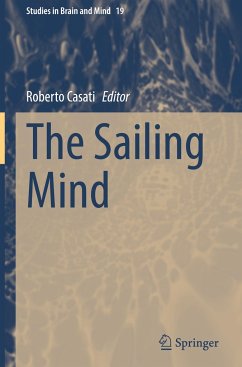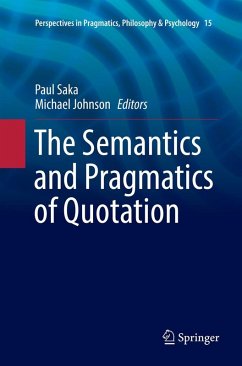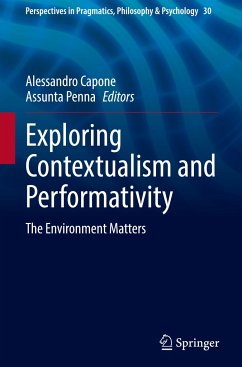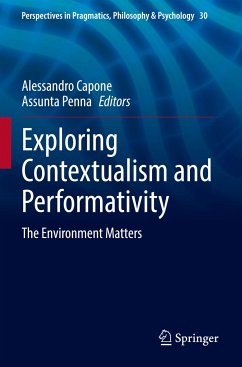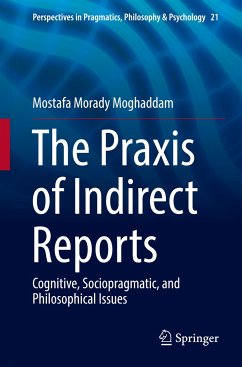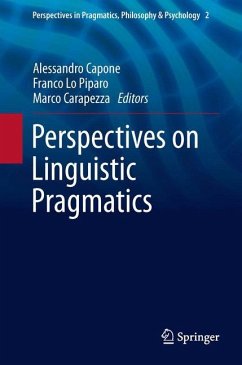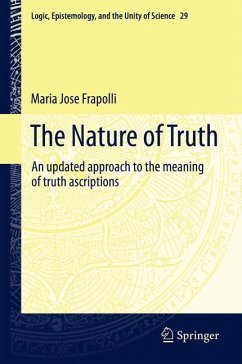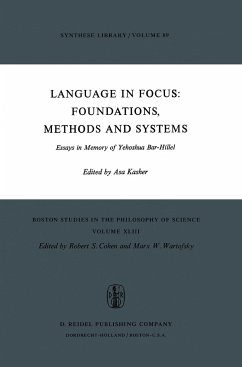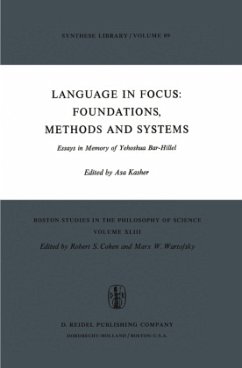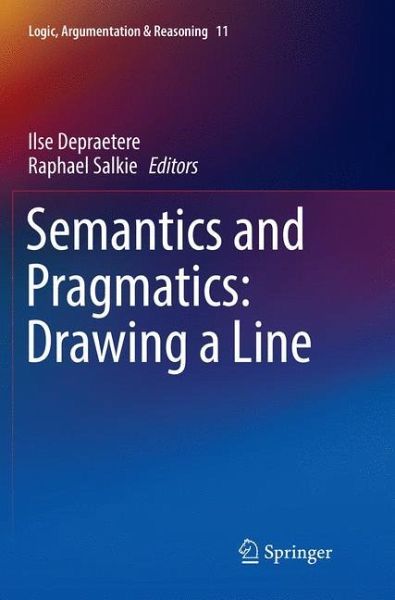
Semantics and Pragmatics: Drawing a Line
Versandkostenfrei!
Versandfertig in 6-10 Tagen
68,99 €
inkl. MwSt.

PAYBACK Punkte
34 °P sammeln!
This book explores new territory at the interface between semantics and pragmatics, reassessing a number of linguistic phenomena in the light of recent advances in pragmatic theory. It presents stimulating insights by experts in linguistics and philosophy, including Kent Bach, Philippe de Brabanter, Max Kölbel and François Recanati. The authors begin by reassessing the definition of four theoretical concepts: saturation, free pragmatic enrichment, completion and expansion. They go on to confront (sub)disciplines that have addressed similar issues but that have not necessarily been in close c...
This book explores new territory at the interface between semantics and pragmatics, reassessing a number of linguistic phenomena in the light of recent advances in pragmatic theory. It presents stimulating insights by experts in linguistics and philosophy, including Kent Bach, Philippe de Brabanter, Max Kölbel and François Recanati. The authors begin by reassessing the definition of four theoretical concepts: saturation, free pragmatic enrichment, completion and expansion. They go on to confront (sub)disciplines that have addressed similar issues but that have not necessarily been in close contact, and then turn to questions related to reported speech, modality, indirect requests and prosody.
Chapters investigate lexical pragmatics and (cognitive) lexical semantics and other interactions involving experimental pragmatics, construction grammar, clinical linguistics, and the distinction between mental and linguistic content. The authors bridge the gap between different disciplines, subdisciplines and methodologies, supporting cross-fertilization of ideas and indicating the empirical studies that are needed to test current theoretical concepts and push the theory further.
Readers will find overviews of the ways in which concepts are defined, empirical data with which they are illustrated and explorations of the theoretical frameworks in which concepts are couched. This exciting exchange of ideas has its origins in the editors' workshop series on the theme 'The semantics/pragmatics interface: linguistic, logical and philosophical perspectives', held at the University of Lille 3 in 2012-13. Scholars of linguistics, logic and philosophy and those interested in the research benefits of crossing disciplines will find this work both accessible and thought-provoking, especially those with an interest in pragmatic theory or semantics.
Chapters investigate lexical pragmatics and (cognitive) lexical semantics and other interactions involving experimental pragmatics, construction grammar, clinical linguistics, and the distinction between mental and linguistic content. The authors bridge the gap between different disciplines, subdisciplines and methodologies, supporting cross-fertilization of ideas and indicating the empirical studies that are needed to test current theoretical concepts and push the theory further.
Readers will find overviews of the ways in which concepts are defined, empirical data with which they are illustrated and explorations of the theoretical frameworks in which concepts are couched. This exciting exchange of ideas has its origins in the editors' workshop series on the theme 'The semantics/pragmatics interface: linguistic, logical and philosophical perspectives', held at the University of Lille 3 in 2012-13. Scholars of linguistics, logic and philosophy and those interested in the research benefits of crossing disciplines will find this work both accessible and thought-provoking, especially those with an interest in pragmatic theory or semantics.



